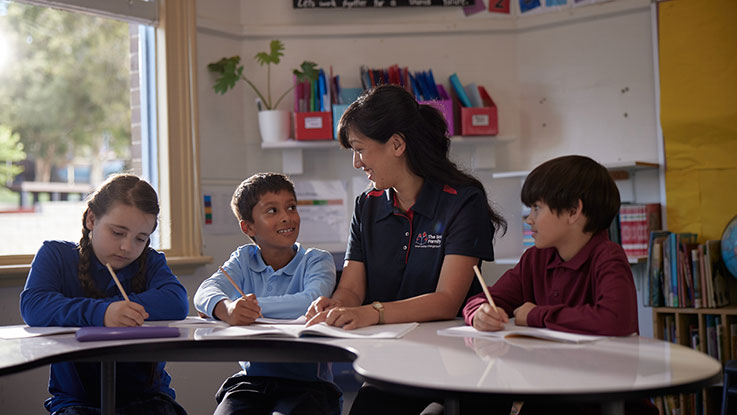
Subject selection in high school
Explore career pathways
A helpful resource is the Careers Bullseyes on the myfuture website. It shows what education or training is needed for different jobs, like a bachelor’s degree or a certificate. This can help you choose the right subjects.
VET and school-based apprenticeships
Some schools offer apprenticeships or traineeships, or even chances to complete a VET Certificate while in school. This is an awesome way to gain real-world experience and skills before you graduate. Ask your career advisor if your school has this option.
Know what's required
Some subjects are compulsory, depending on where you live. For example, in New South Wales, you must take English for the Higher School Certificate (HSC). Make sure you know the requirements in your state or territory.
Understanding the senior certificate and ATAR
If you stay in school until Year 12, you’ll get a senior secondary certificate, which has different names based on where you live. In NSW, it’s the HSC, and in Victoria, it’s the Victorian Certificate of Education (VCE). If you take ATAR subjects, you'll also get an ATAR score, which helps you know which university courses you can apply for. But remember, not everyone needs an ATAR; there are many ways to study more and find work.

One of the careers advisers that I went to, she was really helpful, the other one wasn’t at all. … The course that I wanted to do, I had to get a 70 ATAR and she was pretty much just saying that I wouldn’t get it … and that I needed to look at other options. … I wasn’t too happy with that, so I went to a different careers adviser. She let me keep my first option as the 70 ATAR one, but she helped me find other ways into that actual course.
Balance your workload
ATAR subjects can be hard, so it’s smart to choose a mix of subjects. Don’t take too many difficult subjects at once—it can cause stress. You might even be able to drop a subject in Year 11 if it’s not working out. Your teachers and career advisor can help you with this.
Check what your school offers
Every school has a subject handbook showing what subjects are available. If there’s something you really want to study but your school doesn’t offer it, talk to your career advisor or Year Coordinator. You might be able to take it through another provider, like TAFE or a different school.

My careers team at high school were lovely and they helped me a lot. … I think the fact the careers advisor wasn’t a family member and therefore didn’t have any bias. … They talked to me about what I wanted to talk about and what I wanted to do without implementing their own ideas was possibly the best aspect of having a careers advisor.
Tips
- Choosing subjects is a big decision, but you’re not alone. Your teachers, career advisor, and family are there to help you. Take your time, explore your options, and choose subjects that match your interests and future goals.
Resources
NSW Education – Subject Selection Tips
The NSW Department of Education offers expert insights and practical resources to help navigate the subject selection process.
Skillsroad – Navigating Subject Selection
Skillsroad provides a comprehensive guide for parents to assist teens in making informed decisions.
The NSW Department of Education offers expert insights and practical resources to help navigate the subject selection process.
Skillsroad – Navigating Subject Selection
Skillsroad provides a comprehensive guide for parents to assist teens in making informed decisions.
We are here for you!

Your Family Partnership Coordinator is here to support you through each stage of your child's educational journey.
They can support you to problem-solve any challenges that may come up that affect your child's education.
They can also connect you to educational support programs or services in the community if you decide that's what you need.
You can find your Family Partnership Coordinator's contact details in My Smith Family.
End of article
Related articles

Choosing your subjects in high school is important. It’s not just about what looks cool or seems fun; it can really affect what you do after school. Whether you want to go to university, TAFE, or get a job right away, the subjects you pick now can help you later.
Think about your career goals
If you want a job that needs a university degree, like being a teacher, an engineer, or a lawyer, you’ll need to choose subjects that help you get a high Australian Tertiary Admission Rank (ATAR). This score helps universities decide who can get into their courses. But if you want a job that focuses on practical skills—like plumbing, childcare, or hospitality—you might consider taking vocational education and training (VET) subjects. These can lead to qualifications through TAFE or apprenticeships.Not sure yet? That's okay. Talk to your career advisor or teachers—they can help you explore your options and determine what suits you best.
Check out this activity: Knowing yourself.
- Our activities can be completed independently and at your own pace, offering you the flexibility to explore various topics while developing valuable skills


